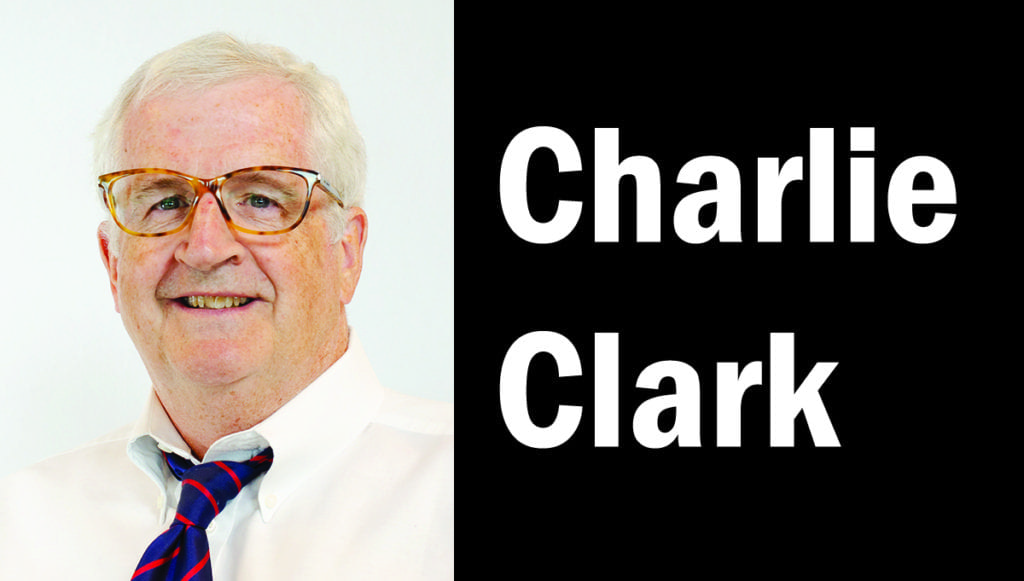Curse you, Covid. You blew up our year-old assumption that 2021 would bring improvements over plague-year 2020.
Still, this year brought many historic events (some positive!) to Arlington, prompting me to exploit my columnist’s prerogative with a personal list.
On the now-infamous Jan. 6, Arlington police agreed, under a Metropolitan Police mutual aid agreement, to send officers to Capitol Hill to help quell an insurrection still being investigated.
In March, George Mason University demolished the building that housed the beloved Kann’s Department Store. Just weeks later, the estate of homebuilder Randy Rouse brought in bulldozers to take down the 150-year-old Febrey-Lothrop House.
In the building-up-not-tearing down department, VDOT reps on March 12 joined with Arlington and Falls Church leaders to cut the ribbon on the new W&OD Bridge bicycle-pedestrian bridge.
County Manager Mark Schwartz on June 4 announced he was making permanent the appointment of acting Arlington Police Chief Charles “Andy” Penn, who replaced the retired Jay Farr.
Arlington House, the Potomac-side 19th-century manse conceived by George Washington Parke Custis, was reopened by the National Park Service on June 8 after a three-year renovation of the exhibits (delayed by the pandemic). Come see fresh interpretations of the enslaved community, Custis and Robert E. Lee.
Lee took a further demotion on July 19 when the county board, after years of discussion, changed the name of Lee Highway to Langston Blvd.
A week later, the board addressed police reform by creating a Community Oversight Board with power to subpoena officers and launch probes. The Arlington branch of the NAACP complained that the group’s powers did not include disciplining errant cops.
On Aug. 30, Arlington Public Schools opened the Cardinal School in Westover, after three years of rapid construction and controversy over school names.
The Central Library auditorium—its audience augmented by Zoom– on Oct. 16 hosted the first symposium on Arlington’s Latino history. Five pioneer elected officials of that heritage participated.
County brass and history curators gathered at Lubber Run Community Center on Oct. 19 for the pandemic-delayed marking of the 100th year anniversary of Arlington taking its name in 1920.
And two weeks before Veterans Day, French visitors and Arlington’s Sister City reps combined at Arlington National Cemetery to mark the 100th anniversary of the selection of an unidentified deceased American WWI doughboy for internment in what is now the Tomb of the Unknowns.
Continuing demolition news, December brought the demise of the Highlander Motel and the 130-year-old Fellows-McGrath House.
Most languishing from my own p.o.v. was the covid-caused postponement of the 50th-year reunion of my Yorktown High School Class of 1971. Long planned for October, it was reluctantly re-set for next June.
Lots of cool 50th anniversaries could have been marked at that gathering: the creation of Amtrak, NPR, Masterpiece Theater, Wolf Trap, the Kennedy Center, Disney World. 1971 was also a standout for reverberating news events: Release of the Pentagon Papers, President Nixon’s floating of the dollar, Henry Kissinger’s secret trip to China, the May Day anti-war protests, the first microprocessor.
1971 is also considered a pivotal year in music lo these 50 years since: Think of Carole King’s “Tapestry,” Joni Mitchell’s “Blue,” John Lennon’s “Imagine,” Marvin Gaye’s “What Going On?,” all in a book (and recent Apple TV documentary on 1971—”The Year that Music Changed Everything”).
Together, we’ll recall these in better health—in 2022.
**
Our thespian jurist: Circuit Court Chief Judge William T. Newman Jr. wowed an audience this month with his one-man performance of August Wilson’s play “How I Learned What I Learned.”
The autobiographical work by the celebrated African-American dramatist was staged at the Avant Bard Theatre at the Gunston Performing Arts Center Dec. 1-19, with support from Arlington Cultural Affairs.
My friend the attorney George Dodge was impressed. Newman stood and acted for “two solid hours without a water break and without cue cards,” Dodge told me. Newman afterwards explained that he practiced three hours a day for several months.
